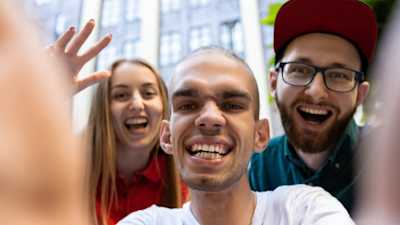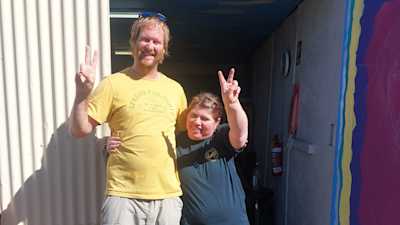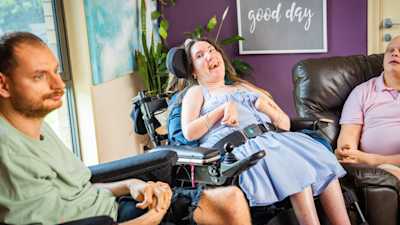It’s time to shake off stereotypes and reject harmful representations of neurodivergent people.
Neurodivergence is an umbrella term for a number of conditions, such as autism, dyslexia, dyspraxia, dyscalculia and attention deficit hyperactivity disorder (ADHD).
People who are neurodivergent have a brain that functions differently from what is considered ‘typical’. These neurological differences are often seen in a person’s thinking processes, attention, memory, or sensory experiences.
Many Australians (15%-20%) are neurodivergent, yet it is often misunderstood, particularly in women. Neurodivergence is considered a hidden disability, and those with neurodivergent conditions can feel isolated socially and in the workplace.
We have put together a list of prominent Australians who are neurodivergent to help raise awareness and reduce the stigma around neurodivergent conditions.
Em Rusciano
Em Rusciano is an Australian comedian, writer, singer and media presenter. She started her media career when she made it into the Top 12 on Australian Idol in 2004. Following Australian Idol, Em moved into breakfast radio and then on to live comedy. Now, she is a published author, podcast host and a regular host on Channel Ten’s ‘The Project’.
Em was diagnosed with ADHD at the age of 42. ADHD can present differently in men and women, and symptoms in girls are often internalised or go unnoticed. As a result, ADHD is considered underdiagnosed in girls. Now, due to more widely accessible knowledge about the condition, more adult women are being diagnosed.
Earlier this year, Em addressed the National Press Club of Australia, sharing her ADHD diagnosis journey and how she felt following the late diagnosis.
"I felt a deep sadness. For that precocious, curious, and chaotic 10-year-old girl who desperately wanted to get things right, the girl who tried hard all the time."
During her address, Em had an important message to share, “the message should not be that the neurodivergent community are lacking or less than, but that we are different and equally worthy.”
“When we are not forced to try and fit into a framework and societal structure that was built for people who aren’t like us, we can be pretty impressive!”
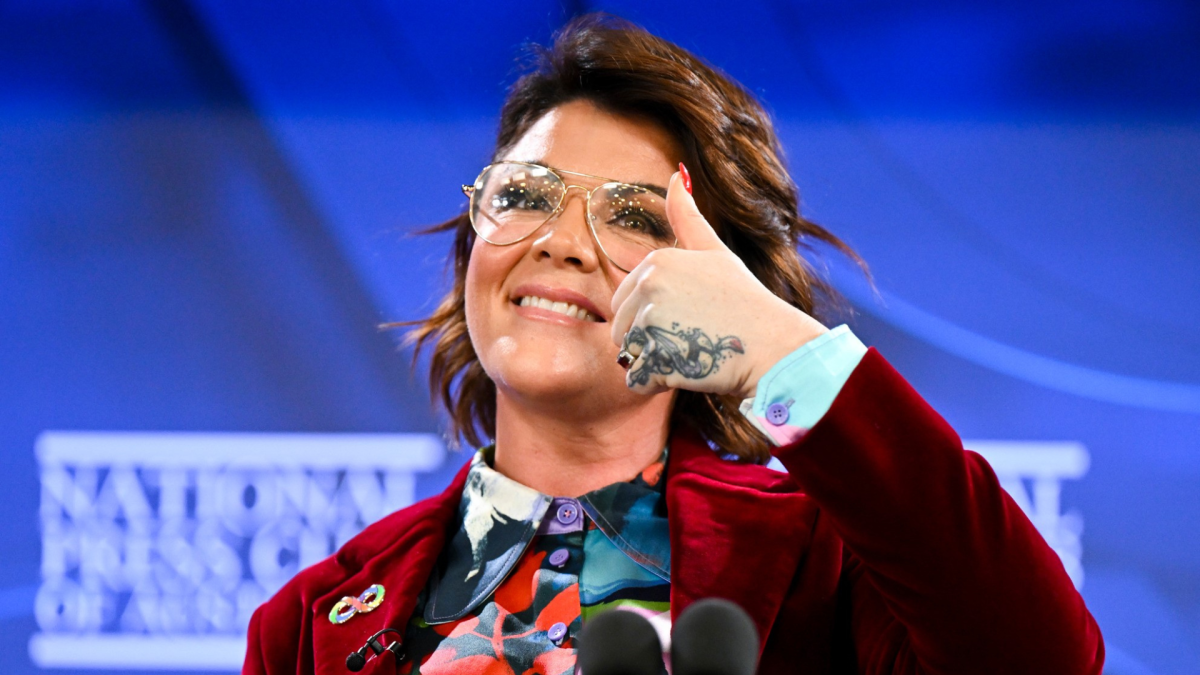
Image: from AAP: Lukas Coch.
Clementine Ford
Clementine Ford is a feminist writer, podcast host and author. Clementine began her writing career in 2007, writing a column for Adelaide’s Sunday Mail. She went on to work as a columnist for Fairfax’s Daily Life, and over the years, she contributed to The Age and the Sydney Morning Herald.
In 2016, Clementine published her first book, 'Fight Like A Girl'. This was followed by her second book, published in 2018, 'Boys Will Be Boys' and her most recent book, 'How We Love', published in 2021.
Like Em Rusciano, Clementine wasn’t diagnosed with ADHD until later in life, at 41. Clementine shared her diagnosis in a post on Instagram, attributing the common misconception that ADHD is a “boy thing” as a factor in her late diagnosis. Clementine also reflected on how she felt following her diagnosis.
“[I felt] relief at finally understanding how and why my brain works the way it does; sadness for all the times I berated myself for being incapable, “stupid” and unreliable; and optimistic about a future that may not include quite so much confusion and anxiety.”
Within her reflection, Clementine shared that she felt a strong sense of pride for what she has achieved, despite and because of her neurodivergence.
“I’m proud that I’ve managed to achieve the things I have despite the whirlwind that lives perpetually in my head. I’ve no doubt many of the things I’ve done have been BECAUSE of that whirlwind.”
“For years, I described my brain as “fizzy”. Now I know that it’s actually sparkling.”
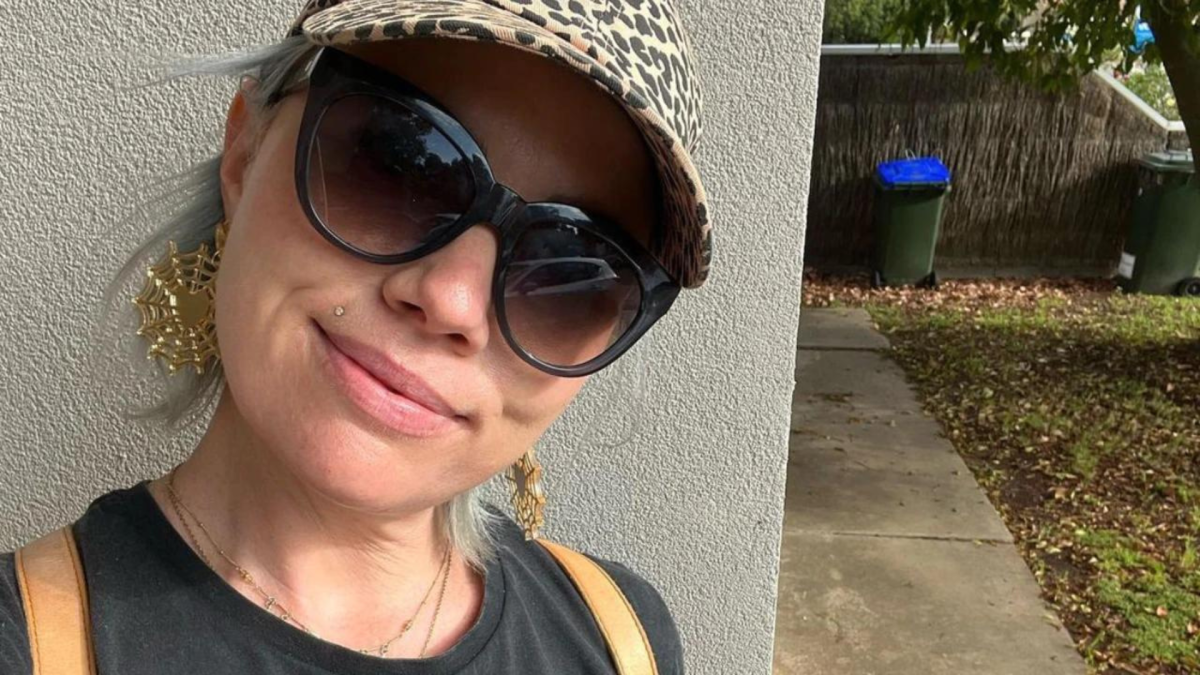
Image: from Instagram/@clementine_ford.
Josh Thomas
Josh Thomas is a comedian, actor, writer, and podcast host. Josh became a household name in 2009 when he represented Generation Y on Channel 10’s ‘Talkin’ ‘Bout Your Generation’. He garnered worldwide recognition following the release of the television series ‘Please Like Me’ and ‘Everything’s Gonna Be Okay’ which he both wrote and starred in. Now, Josh is a podcast host on his show ‘How To Be Gay’.
At 28, Josh was diagnosed with ADHD, and at 33, he was diagnosed with autism. Josh reflected on how he felt about being diagnosed with ADHD and autism.
“It’s been a nice experience for me, figuring it out. I’ve learnt to understand myself better, and it’s helped people around me do the same. There’s been a lot of emotions, but the most dominant one has been relief.”
With his experience working in TV, Josh knows how important positive and realistic representations are for diverse groups.
“The range of autistic people and characters we see in the media is very slim when the autism spectrum is huge and varied."
"So, here I am, another version of an autistic person for people to see.”
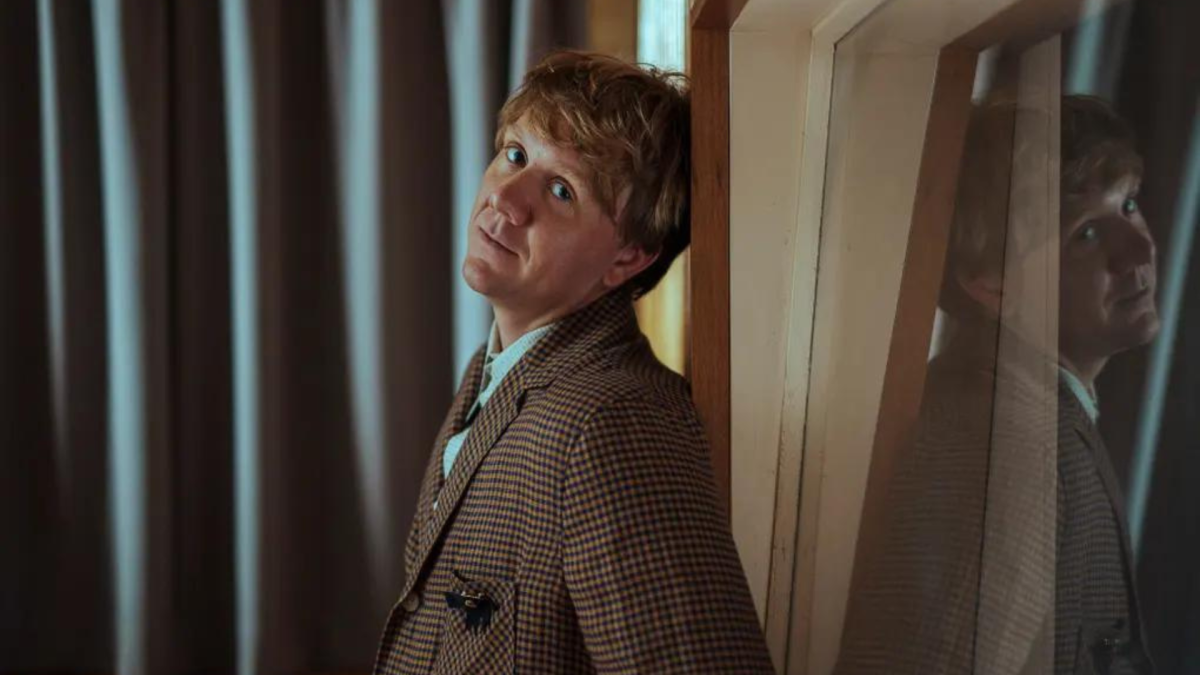
Image: from Audible.
Hannah Gadsby
Hannah Gadsby is a comedian, writer, and actress. Hannah began her career as a stand-up comedian. She rose to worldwide fame with her show ‘Nanette’, which was released on Netflix and won an Emmy Award for outstanding writing for a variety special. ‘Nanette’ was followed by ‘Douglas’, which also appeared on Netflix and, among other topics, explored her autism diagnosis. Since then, Hannah has published her first book ‘Ten Steps to Nanette: A Memoir Situation’ which explored, in part, her late-in-life diagnoses of autism and ADHD.
Hannah was diagnosed with both autism and ADHD in 2017 at the age of 38. When Hannah shared her diagnosis with the world, she experienced a lack of understanding and dismissal from some people due to the many misconceptions people hold about autism and neurodiversity.
“I was told I was too fat to be autistic.
"I was told I was too social to be autistic.
"I was told I was too empathic to be autistic.
"I was told I was too female to be autistic.
"I was told I wasn’t autistic enough to be autistic,” Hannah said.
“Nobody who refused me my diagnosis ever considered how painful it might have been for me.”
Despite the less-than-understanding responses she received, the diagnoses for Hannah were the key to helping her understand herself.
“I stopped worrying about what I was expected to do and worked on things I could do to make myself feel safe and calm.
"It's freed me up in a lot of ways. I'm not trying to twist myself to feel normal; I'm just standing straight and going, 'Well, we can begin at not normal and move off from there'."
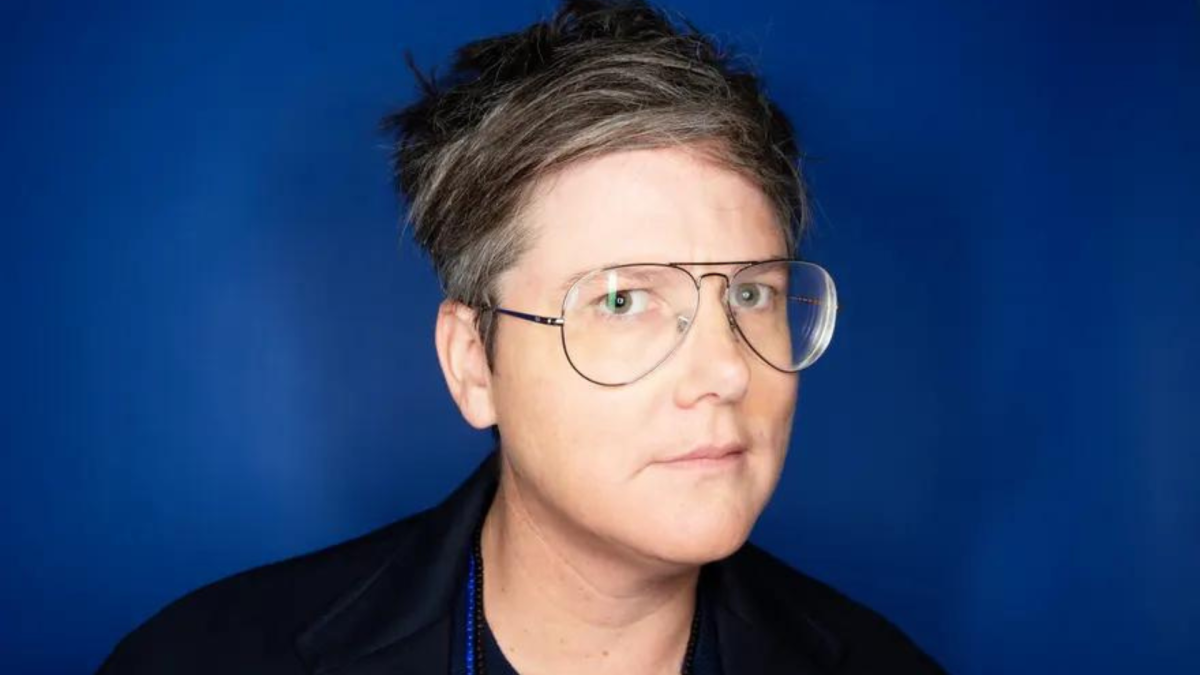
Image: from Murdo MacLeod/The Guardian.
Chris Morgan
Chris Morgan is an Australian rower. He has competed at three Olympic Games, and in 2012, he took home a bronze medal from the London Games. Chris has also been the national champion and two-time world champion in both sculls and sweep-oared boat classes.
Throughout his rowing career, Chris faced several obstacles, including struggling to fit into the team environment and finding it difficult to cope in crowds. At 28, Chris was diagnosed with autism, which helped him understand himself and also helped his teammates to understand him.
"A lot of the time, the way I would communicate could be misinterpreted; my way of plain speaking and my obsession with trying to improve really got a lot of people offside," Chris said.
"Going through that process of getting everyone on the same page with the diagnosis did help with understanding."
Now, Chris is a disability advocate, working to raise awareness about autism and promote encouragement of exclusion for neurodiverse people in sports.
“Every child should be able to participate (in sport), but make sure the support is there for them and that they are comfortable in the environment you are putting them in.”
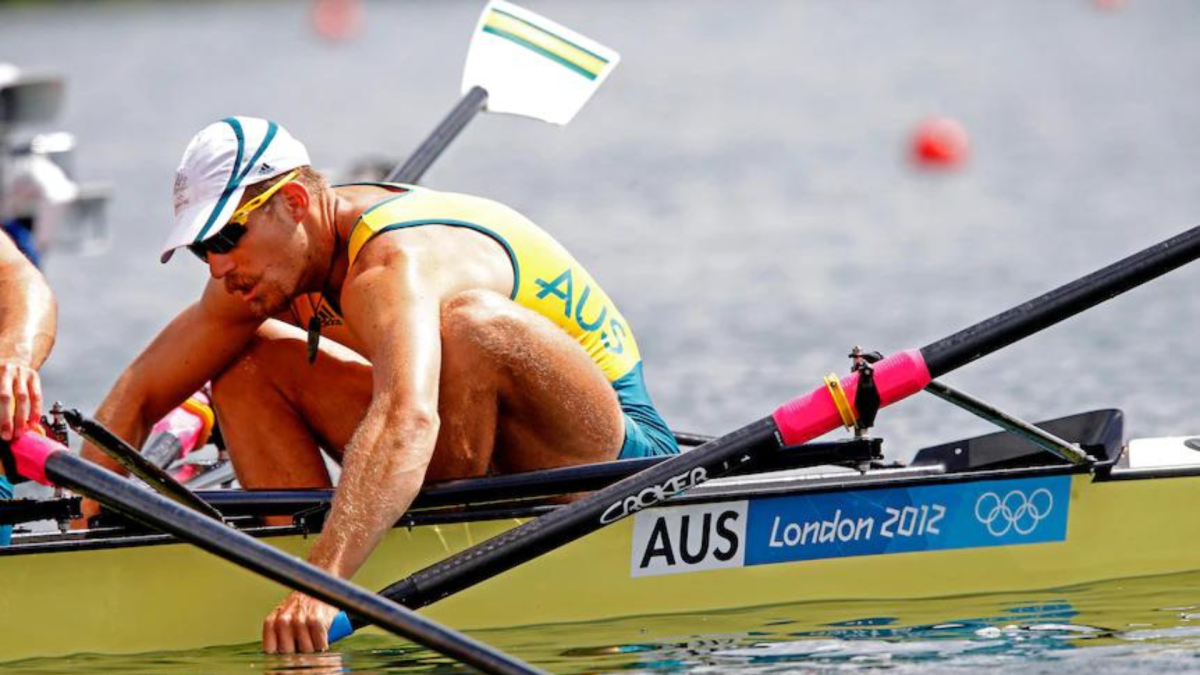
Image: from Rowing Australia.
Chloe Hayden
Chloe Hayden is an actor best known for her role as Quinni, an autistic character in the recent reboot of the TV series ‘Heartbreak High’. Chloe is also a disability activist, motivational speaker, influencer and author. She recently wrote her first book, 'Different, Not Less', which is a guide to celebrating and supporting neurodivergence.
Chloe was diagnosed with autism at 13, and ADHD at 22. During her childhood, Chloe faced many challenges due to the lack of knowledge others had about neurodivergence, particularly at school, where she faced bullying, and her teachers struggled to understand her needs.
One thing that Chloe is passionate about is improving the representation of people with disability in the media. In fact, 95% of disabled characters are played by non-disabled actors, which Chloe says has contributed to negative portrayals and stereotyping of people with autism.
“The biggest comment that I get is, ‘You can’t be autistic’ because people see me at music festivals and filming Netflix shows and writing books and stuff,” Hayden said.
“And part of that is people have this idea that autism is bad, and autism is scary, and (autistic) people can’t do anything.”
This perception of autistic people is why it was so important to Chloe for her character Quinni to reject the usual stereotypes and provide a realistic and positive representation for young people with autism to see.
“Being a teenager is hard, and being a neurodiverse teenager makes it so much more difficult. But your brain is your brain, and it was created to be different."
"I think it’s important to have the understanding that your mind is magic, and it’s so important to not lose that.”
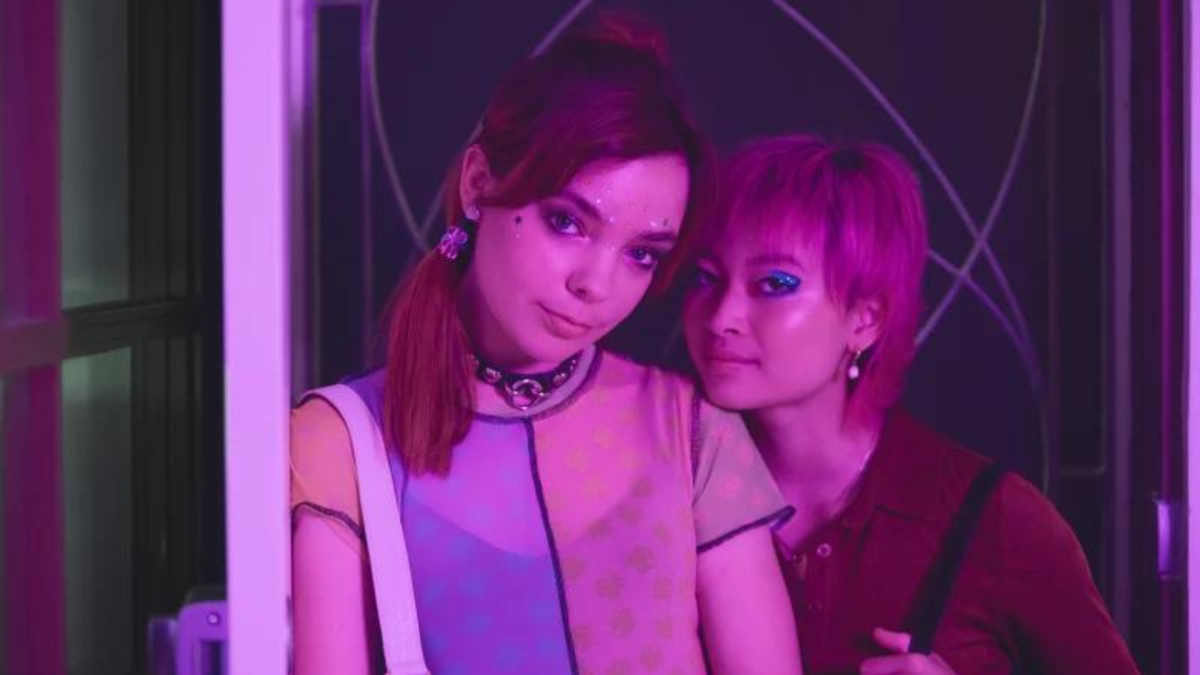
Image: from Lisa Tomasetti/Netflix.
You can learn more about the characteristics and symptoms of neurodivergent conditions like ADHD and autism on the websites below:
